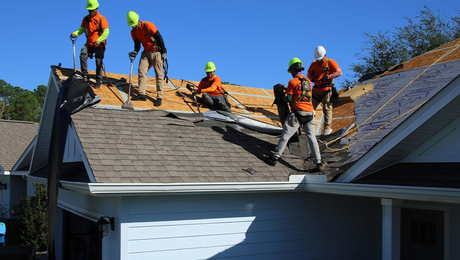*
Here is one of many links… Electro Osmatic Control Of Groundwater
Has anyone heard of this? Do you think it is a viable solution for damp basements? Are the costs prohibitive?
As usual I have more questions than answers, but it seems like a neat solution.















Replies
*
I had never heard of such a thing, but I did a search google and got lots of hits. Including this one http://www.popsci.com/hometech/news/010509.h.html
*I was all excited about it when I heard about it, but after studying about the tests that were done in the UK they finally concluded that it was only effective in ideal conditions.It also requires active maintainence to remain effective, and that if the water dried out that the current would stop and had to be 're-started' for it to work again, or something like that.Anyway, I got the impression that in certain commercial applications it can be used effectively but that it was a pretty long shot for small, domestic situations.
*Norm, what are ideal conditions? Do you have a web-link to that study you looked at?Actually, this seems like science 101 stuff, and I bet the costs going in can be reduced by a combination of Yankee ingenuity and sharing of technology.Active maintenence is fine with me, especially if that means the system shuts down when it has done it's job. In most cases, hopefully, basement moisture problems are a seasonal thing. I also wondered about living with, and controling the system, nevermind the costs of running it.All new to me, like I said more questions than answers.
*I am an engineer and get off' on technical solutions to problems, and I live with a steam heating system so regular weekly maintainence is no problem to me, but what I found out about this topic made me think that it was in another category.So, I am not sure if I could find the information again. I special ordered a book from the UK, that Gene Leger mentions in his book, that mentions this technique, I think. Maybe there was a web site involved too....I will try and find the info again.I do remember that the bottom line was this:Control the water in the first place, keep it away from your foundation and away from your walls (my basement walls are 'rubble' walls from 1900 so they are very porous - no trace of a water barrier exists). Then, the only reason why you should ever want to use an active system to further reduce water issues would be if you had a ground water problem, and those are more directly dealt with by a sump system anyway (reduce the water table around your house). The Electro-osmosis was a neat sounding, very limited applicability kind of thing that had simpler / more productive alternatives.The special cases where this system was used, if I remember, was in major municipal buildings with ground water issues that went beyond what could economically be pumped away, or in dams or something like that. And they did not work as well as the more tried & true ways, except in special cases (a big building built on the banks of a river or canal, for instance).If I find the materials and they tell a different story I'll repost. But if I am remembering correctly, and the materials match this then I won't bother.
*OK, you got me wondering so I looked last night and here's what I found:"Electro-Osmosis works best in clay soil, but it depends on the types of salts present.""Problems with Electro-Osmosis are: - The current must be varied along an wall, and with the seasons to properly function and HOW to do that is not known. - If the current is broken (a dry spell, etc.) it needs to be re-established later. HOW to do that automatically is not known. - If the current is broken and the current is re-established, it may flow in the REVERSED direction" (care must be taken, I guess to, prevent it from pulling water INTO your basement!).All of the above is from, "Dampness in Buildings", 2nd Edition, by Alan Oliver, published by Oxford University 1997.The upshot was that he did not recommend that method. Instead, use one of the many countermeasures that already exist (this book is full of thechniques, especially for masonry buildings since that is what most of the UK is made of).
*
Here is one of many links… Electro Osmatic Control Of Groundwater
Has anyone heard of this? Do you think it is a viable solution for damp basements? Are the costs prohibitive?
As usual I have more questions than answers, but it seems like a neat solution.